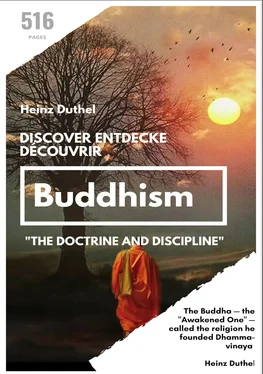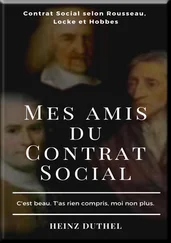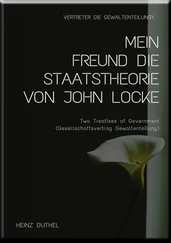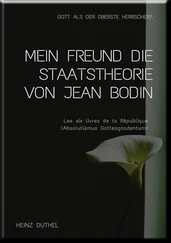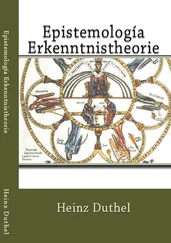— Snp III.2
Notes
1.
Mara.
2.
The highest equanimity that can be attained through jhana.
3.
Muñja grass was the ancient Indian equivalent of a white flag. A warrior expecting that he might have to surrender would take muñja grass into battle with him. If he did surrender, he would lie down with the muñja grass in his mouth. The Buddha, in asking this rhetorical question, is indicating that he is not the type of warrior who would carry muñja grass. If defeated, he would rather die than surrender.
He abandons his austerities
"I thought: 'I recall once, when my father the Sakyan was working, and I was sitting in the cool shade of a rose-apple tree, then — quite withdrawn from sensuality, withdrawn from unskillful mental qualities — I entered & remained in the first jhana: rapture & pleasure born from withdrawal, accompanied by directed thought & evaluation. Could that be the path to Awakening?' Then, following on that memory, came the realization: 'That is the path to Awakening.' I thought: 'So why am I afraid of that pleasure that has nothing to do with sensuality, nothing to do with unskillful mental qualities?' I thought: 'I am no longer afraid of that pleasure that has nothing to do with sensuality, nothing to do with unskillful mental qualities, but it is not easy to achieve that pleasure with a body so extremely emaciated. Suppose I were to take some solid food: some rice & porridge.' So I took some solid food: some rice & porridge. Now five monks had been attending on me, thinking, 'If Gotama, our contemplative, achieves some higher state, he will tell us.' But when they saw me taking some solid food — some rice & porridge — they were disgusted and left me, thinking, 'Gotama the contemplative is living luxuriously. He has abandoned his exertion and is backsliding into abundance.'
"So when I had taken solid food and regained strength, then — quite withdrawn from sensuality, withdrawn from unskillful mental qualities, I entered & remained in the first jhana: rapture & pleasure born from withdrawal, accompanied by directed thought & evaluation. But the pleasant feeling that arose in this way did not invade my mind or remain. With the stilling of directed thoughts & evaluations, I entered & remained in the second jhana: rapture & pleasure born of composure, unification of awareness free from directed thought & evaluation — internal assurance. But the pleasant feeling that arose in this way did not invade my mind or remain. With the fading of rapture I remained in equanimity, mindful & alert, and physically sensitive of pleasure. I entered & remained in the third jhana, of which the Noble Ones declare, 'Equanimous & mindful, he has a pleasant abiding.' But the pleasant feeling that arose in this way did not invade my mind or remain. With the abandoning of pleasure & pain — as with the earlier disappearance of elation & distress — I entered & remained in the fourth jhana: purity of equanimity & mindfulness, neither pleasure nor pain. But the pleasant feeling that arose in this way did not invade my mind or remain."
— MN 36
The Awakening
[Date: -45 BE]
He finds the Middle Way
"There are these two extremes that are not to be indulged in by one who has gone forth. Which two? That which is devoted to sensual pleasure with reference to sensual objects: base, vulgar, common, ignoble, unprofitable; and that which is devoted to self-affliction: painful, ignoble, unprofitable. Avoiding both of these extremes, the middle way realized by the Tathagata — producing vision, producing knowledge — leads to calm, to direct knowledge, to self-awakening, to Unbinding.
"And what is the middle way realized by the Tathagata that — producing vision, producing knowledge — leads to calm, to direct knowledge, to self-awakening, to Unbinding? Precisely this Noble Eightfold Path: right view, right resolve, right speech, right action, right livelihood, right effort, right mindfulness, right concentration. This is the middle way realized by the Tathagata that — producing vision, producing knowledge — leads to calm, to direct knowledge, to self-awakening, to Unbinding."
— SN 56.11
He penetrates the Three Knowledges
"When the mind was thus concentrated, purified, bright, unblemished, rid of defilement, pliant, malleable, steady, & attained to imperturbability, I directed it to the knowledge of recollecting my past lives. I recollected my manifold past lives, i.e., one birth, two... five, ten... fifty, a hundred, a thousand, a hundred thousand, many eons of cosmic contraction, many eons of cosmic expansion, many eons of cosmic contraction & expansion: 'There I had such a name, belonged to such a clan, had such an appearance. Such was my food, such my experience of pleasure & pain, such the end of my life. Passing away from that state, I re-arose there. There too I had such a name, belonged to such a clan, had such an appearance. Such was my food, such my experience of pleasure & pain, such the end of my life. Passing away from that state, I re-arose here.' Thus I remembered my manifold past lives in their modes & details.
"This was the first knowledge I attained in the first watch of the night. Ignorance was destroyed; knowledge arose; darkness was destroyed; light arose — as happens in one who is heedful, ardent, & resolute. But the pleasant feeling that arose in this way did not invade my mind or remain.
"When the mind was thus concentrated, purified, bright, unblemished, rid of defilement, pliant, malleable, steady, & attained to imperturbability, I directed it to the knowledge of the passing away & reappearance of beings. I saw — by means of the divine eye, purified & surpassing the human — beings passing away & re-appearing, and I discerned how they are inferior & superior, beautiful & ugly, fortunate & unfortunate in accordance with their kamma: 'These beings — who were endowed with bad conduct of body, speech, & mind, who reviled the noble ones, held wrong views and undertook actions under the influence of wrong views — with the break-up of the body, after death, have re-appeared in the plane of deprivation, the bad destination, the lower realms, in hell. But these beings — who were endowed with good conduct of body, speech & mind, who did not revile the noble ones, who held right views and undertook actions under the influence of right views — with the break-up of the body, after death, have re-appeared in the good destinations, in the heavenly world.' Thus — by means of the divine eye, purified & surpassing the human — I saw beings passing away & re-appearing, and I discerned how they are inferior & superior, beautiful & ugly, fortunate & unfortunate in accordance with their kamma.
"This was the second knowledge I attained in the second watch of the night. Ignorance was destroyed; knowledge arose; darkness was destroyed; light arose — as happens in one who is heedful, ardent, & resolute. But the pleasant feeling that arose in this way did not invade my mind or remain.
"When the mind was thus concentrated, purified, bright, unblemished, rid of defilement, pliant, malleable, steady, & attained to imperturbability, I directed it to the knowledge of the ending of the mental fermentations. I discerned, as it had come to be, that 'This is stress... This is the origination of stress... This is the cessation of stress... This is the way leading to the cessation of stress... These are fermentations... This is the origination of fermentations... This is the cessation of fermentations... This is the way leading to the cessation of fermentations.' My heart, thus knowing, thus seeing, was released from the fermentation of sensuality, released from the fermentation of becoming, released from the fermentation of ignorance. With release, there was the knowledge, 'Released.' I discerned that 'Birth is ended, the holy life fulfilled, the task done. There is nothing further for this world.'
Читать дальше
